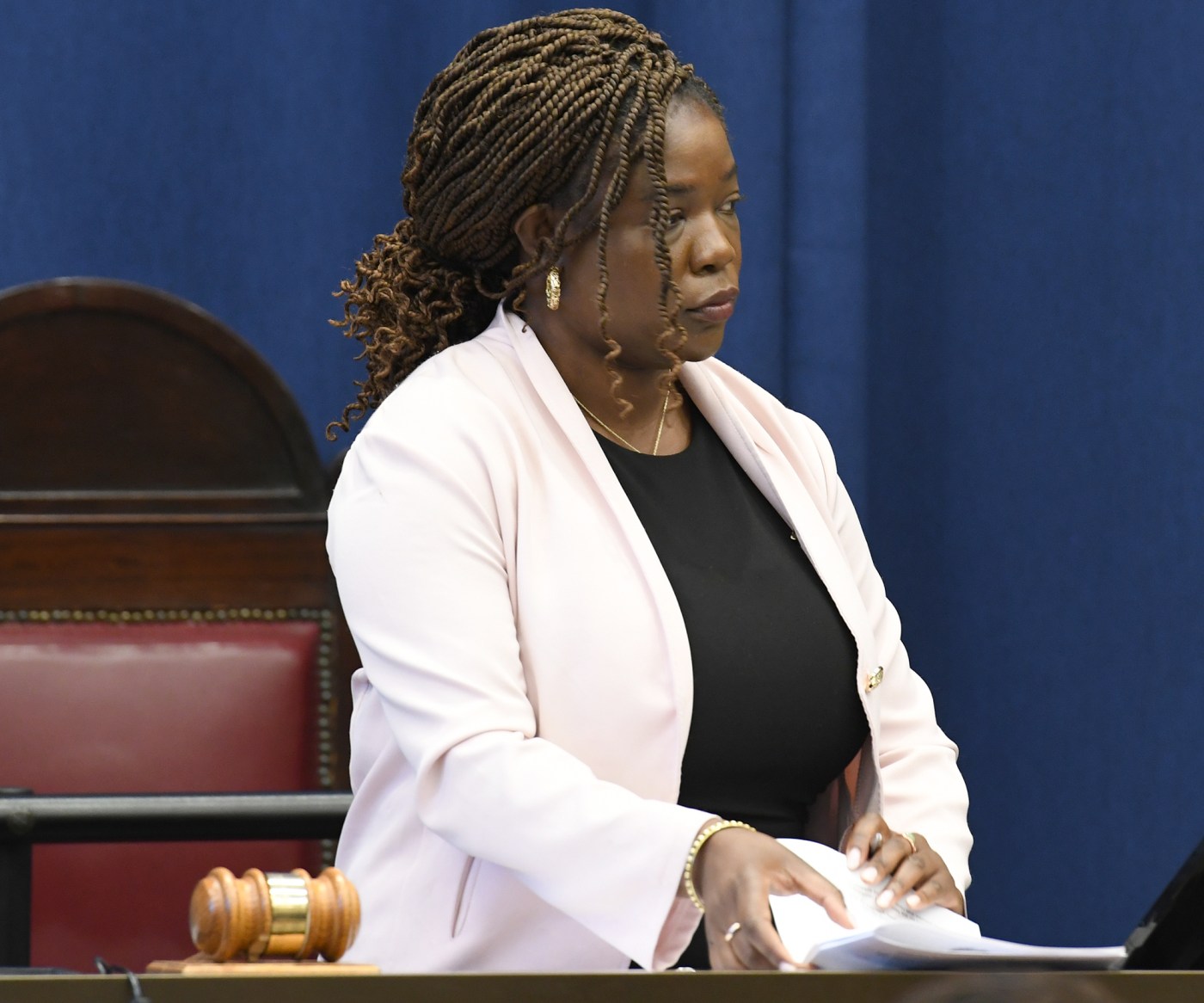
Boston City Council push for ranked-choice voting quickly garners opposition
Boston City Council President Ruthzee Louijeune is leading a new push to implement a ranked-choice voting system for municipal elections, four years after Massachusetts voters rejected a similar statewide ballot initiative.
In a home rule petition introduced Wednesday, Louijeune argued that while 55% of Massachusetts voters in 2020 spurned a system where voters would rank a series of candidates by preference rather than simply select their top choice, there was actually “broad” support for the change in Boston, where 62% were in favor.
Such a change, she said, would “modernize how we vote and how every voice is heard in our elections.” It would also foster greater civic engagement and reduce political polarization, she added.
“This is about making sure the majority of voters are content, are happy with who ends up winning the seat,” Louijeune said.
“By moving from a top-two system to a top-four system, we allow more candidates to come forward from preliminary elections, ensuring that the final choices presented are reflective of a broader consensus — something that I know voters want to see more of, more consensus voting and less acrimony,” she said.
The current voting system, Louijeune and her co-sponsors and fellow progressive councilors Julia Mejia and Henry Santana argue, creates scenarios where voters may be inadvertently benefiting their least preferred candidate when casting a ballot for their top pick — which their proposal seeks to fix.
The change would promote the top four district council and mayoral candidates from the preliminary election, rather than the top-two-vote-getting candidates that currently advance. Voters would then rank up to four candidates in the order of their preference for each race in the final municipal election.
If no candidate wins more than 50%, the bottom vote-getter is eliminated, and all of the ballots that went to them are allocated to voters’ second-place choices. If no one is above 50%, the process repeats, eliminating one candidate per round until there are only two candidates left, at which point the one with the most votes wins.
Louijeune, Mejia and Santana touted ranked-choice voting — adopted by the state of Maine and a handful of cities — as a way to empower candidates to run more “positive, issue-focused campaigns, which would promote less adversarial political dialogue” by way of candidates seeking to be a preferred second choice, rather than the top choice.
The proposal is already facing similar opposition to what voters cited four years ago when defeating a statewide ranked-choice voting system, which is that it would be too complicated and confusing to voters, and hurt democracy, rather than enhance it as proponents of the change suggest.
While Ed Flynn was the only councilor to speak in opposition when the home rule petition was brought forward at Wednesday’s meeting, it does not appear to have a clear path to passage on the City Council. Five of 13 councilors did not sign onto the measure when it was referred to a subcommittee for further discussion.
Flynn said the current system for electing the City Council works, whereas ranked-choice is “confusing” and “challenging” and creates a scenario where outside groups with the ability to run high-dollar financing campaigns may have the ability to get more candidates into office, “regardless of what voters want.”
MassGOP Chair Amy Carnevale quickly chimed in with a sharper rebuke, saying that the proposal was being advanced by “Boston radicals who were rebuffed in their attempt to bring the measure back to the voters in 2024 on a statewide basis” and “represents a clear backdoor attempt to subvert the will of the voters.”
A home rule petition requires City Council and mayoral approval before moving on to the state Legislature for consideration, rather than a referendum vote.
Related Articles
Boston Mayor Wu vetoes City Council cuts to police, fire, core city services
‘Totally out of control:’ Questions remain after gang violence shuts down Dorchester charter school
Boston Mayor Wu plans to veto City Council budget cuts to police, fire
Boston city councilor in the hot seat for handling of Back Bay bike lanes meeting
Boston city councilor ‘skeptical’ that costly capital projects will be completed
“Ranked-choice voting undermines the election process, confuses voters, and can lead to scenarios where the candidate with the most votes doesn’t secure victory and the votes of voters are discarded entirely,” Carnevale said in a statement. “It’s not healthy for democracy and is a solution in search of a problem.”
U.S. Rep. Ayanna Pressley, a co-sponsor of a similar measure in Congress, quickly countered with a statement of support, saying, “Ranked-choice voting has proven to be a more accurate reflection of voters’ preferences for elected leadership and honors the foundational principles of representative democracy.
“With widespread efforts to suppress the vote and disenfranchise our communities nationwide, we need proactive reforms at every level of government to strengthen our democracy and empower the electorate,” Pressley added.
Louijeune acknowledged the criticism, saying she was optimistic that further Council discussions would make the change less “scary” and “misunderstood.”
“I know that change can be difficult,” Louijeune said, “but change can also be better, and better for our city.”

